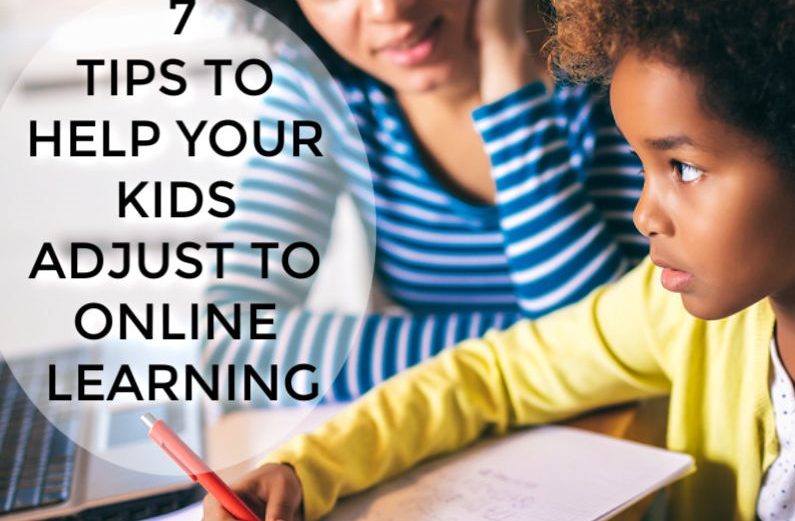“Sitting down with my son to play a game involving mixed fractions, I found myself falling behind fifth-grade math. It took me five steps, and he did it in three,” Mrs. Ojo said.
Taking part in online learning, participating in Google meetings with his teachers, taking on the role of a home teacher, has been daunting and also an eye-opener for me as a parent on helping my child manage and perform well with online learning.
Here are ways parent can help their child with online learning:
1. Know the differences and embrace opportunities in learning at home: Remember that distance learning at home and learning at school will not look the same — and that’s okay. Encourage and turn home activities into educational opportunities.
2. Help them learn the tools needed for online learning: Spend time up front to help your child know how to navigate and use every tool introduced by your child’s school for online learning. The more they can use the tools, the lesser stress it for them to conveniently learn.
3. Build a routine: Kids do best when the world is predictable, start with “aspirational” practices—everyone up by 7:00 a.m., class starts at 8:00 a.m.—and refine them as needed. Think of them as provisional routines, which over time can become sturdy.
4. Trust the teachers: Teachers are trying to figure out the best system to teach without overwhelming kids and their families. If a child is desperate for supplemental work, fine. But otherwise, stick to what the teachers require.
5. Start with fun: Try to have some fun before you get started. You can play fun educational games, puzzles, fun activities, etc. to prepare the mind of your kids before or after online learning takes place. This makes learning more engaging and relatable.
6. Explore other resources in your child’s interest: Apart from what schools are doing, you can also look for other things in your child’s interest that are fun for them. Online learning is not just for school stuff, they can also do things that they like. If your child likes French you can use Duolingo for them to learn, if your child loves football you can look for online platforms that teach them that. Also, help them navigate and ensure they are safe online.
7. Remember to wait: Children take more time to process questions than adults might realize. Being patient with a child’s answer encourages thinking and builds confidence. Consciously waiting for kids to respond will also prevent parents from doing the work for them.
Many parents are being asked to assume a lot more responsibility in their child’s schooling. Online learning opens the mind of children to a wide range of things they have interest in, and they can access themselves as long as they know how to use it.
Remember, all learning does not have to be the same. Make learning varied, it could be live, recorded lessons, games, etc. This is where 9ijakids comes in. Using games and other resources to help children learn and have fun while learning.


